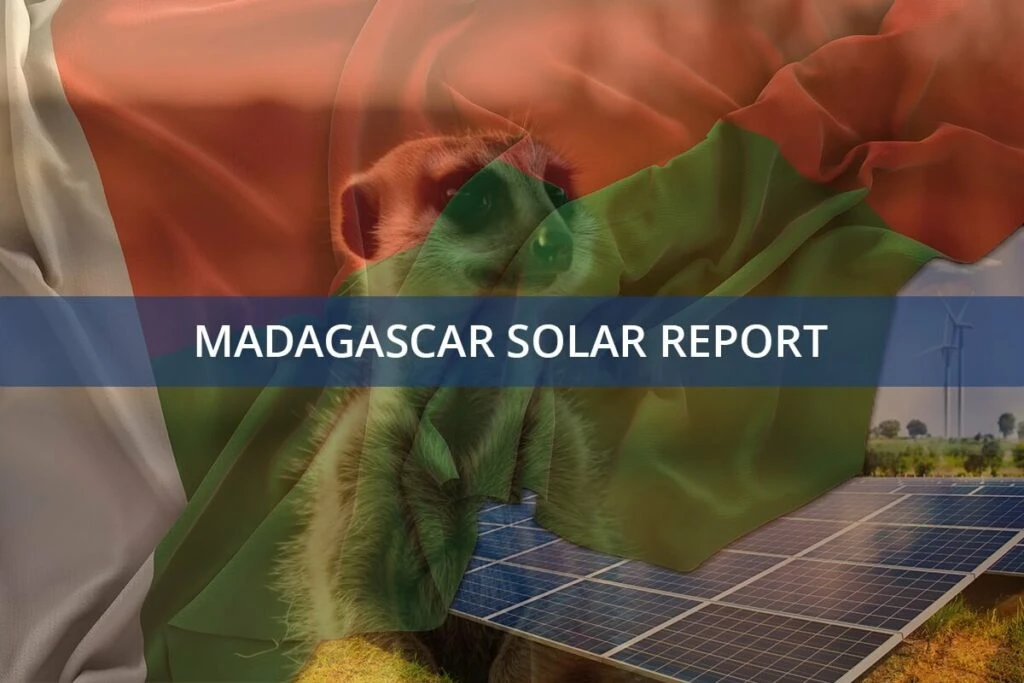Tackling Energy Poverty Through Solar Electrification in Madagascar
The French development NGO GRET has launched a solar electrification project in Madagascar, part of its ongoing commitment to reducing energy poverty and promoting renewable energy. This ambitious initiative aims to provide affordable, sustainable energy to rural communities, improving living conditions and supporting economic development in one of the world’s most energy-deprived regions.
In collaboration with local partners, GRET is working to extend solar energy to isolated communities where access to electricity is severely limited. The project focuses on the Melaky region, where only 4% of the population has reliable electricity—a significant barrier to economic growth and development.
By implementing solar mini-grids, the project will electrify 2,000 households, 30 small businesses, 10 public buildings, and 7 water supply networks—an effort that will significantly enhance the region’s infrastructure and economic potential.
Solar Mini-Grids Driving Sustainable Development in Madagascar
At the heart of the project is the construction of solar mini-grids, which are small-scale, decentralized power generation systems. These grids will provide reliable and renewable energy to communities that have long relied on expensive and polluting alternatives like kerosene lamps and diesel generators.
The solar electrification project is expected to have a significant impact on the Melaky region. Reliable electricity will improve the quality of life for residents by enabling better access to education, healthcare, and clean water. The project also promises to support local businesses, creating new economic opportunities and fostering growth. Furthermore, replacing diesel generators with solar energy will help reduce greenhouse gas emissions and promote environmental sustainability.
For more on how solar projects are making an impact in Madagascar, visit PVknowhow.com.
GRET’s Renewable Energy Vision for Madagascar
This project in Madagascar is part of GRET’s larger effort to combat energy poverty and promote renewable energy in developing countries. The NGO has been active in the renewable energy sector for over three decades, working on projects across Africa, Asia, and Latin America. By focusing on solar and other renewables, GRET aims to provide sustainable, affordable energy solutions that can help communities break the cycle of poverty.
Global Backing for Solar Projects in Madagascar
GRET’s initiative aligns with broader international efforts to promote renewable energy in Madagascar. The World Bank, for example, has been investing in solar projects across the country, including a $74 million project to build a 20 MW solar power plant in the capital, Antananarivo.
The Asian Development Bank (ADB) is also supporting solar development in Madagascar, with plans to build a 50 MW solar power plant in the southern part of the country. These projects are part of Madagascar’s goal to increase its renewable energy capacity and reduce its reliance on fossil fuels.
A successful outcome for GRET’s solar electrification project could serve as a model for other regions in Madagascar and beyond. Demonstrating the feasibility and benefits of solar mini-grids could attract further investment and encourage similar initiatives in other rural areas.
GRET’s solar electrification project is a critical step toward addressing energy poverty in Madagascar. Delivering affordable and sustainable energy to rural communities will improve living conditions, support economic development, and advance environmental sustainability. As the world shifts toward renewable energy, projects like this play a crucial role in ensuring no community is left behind.



